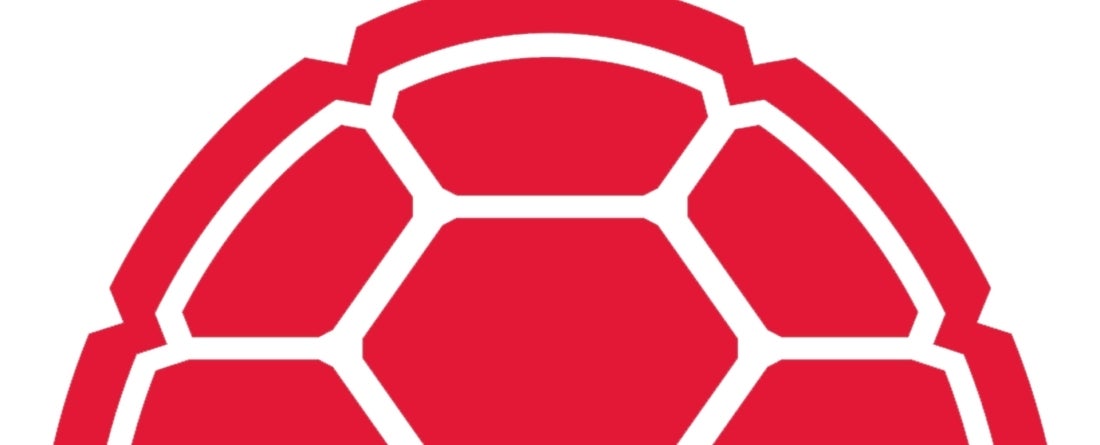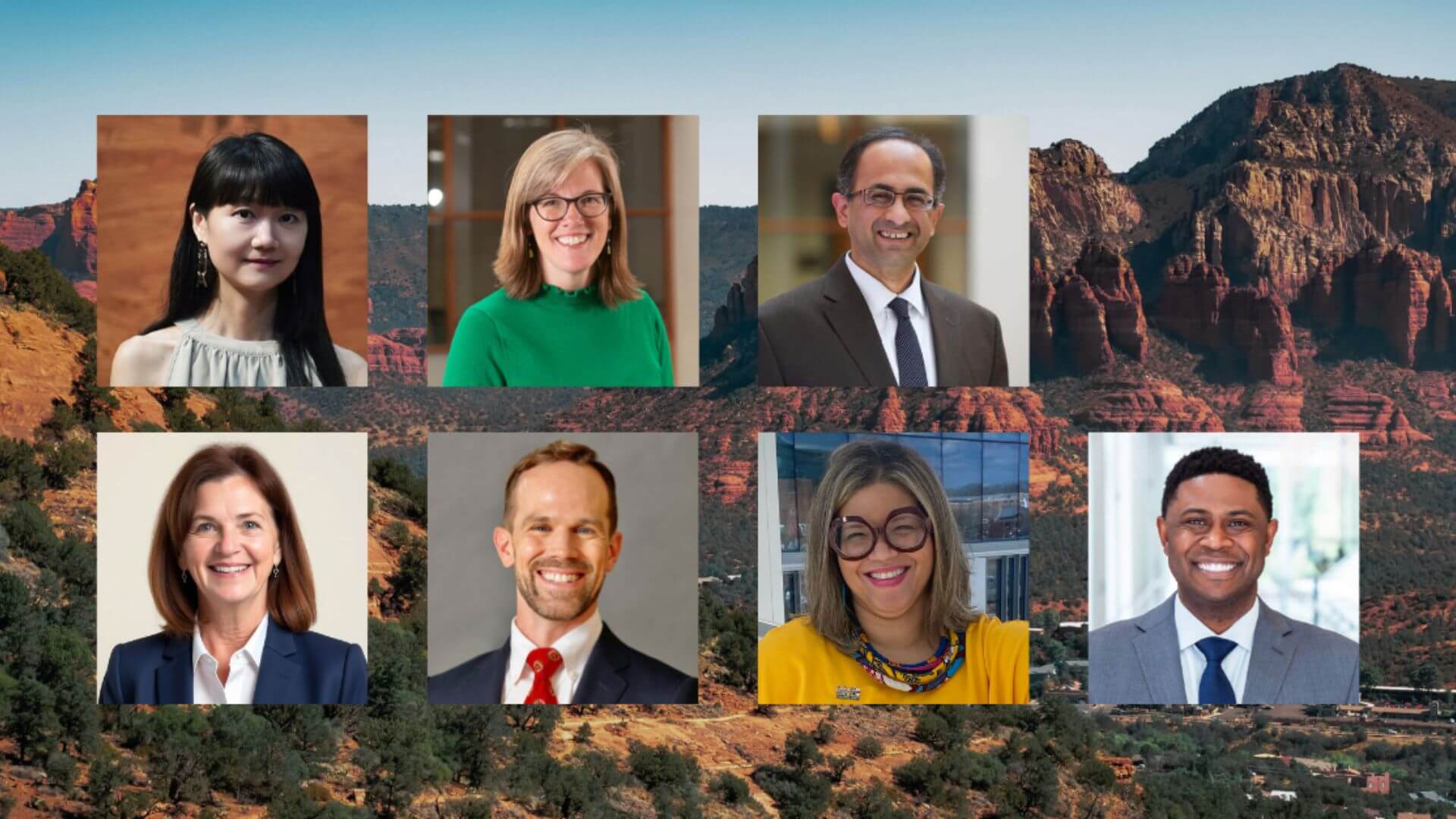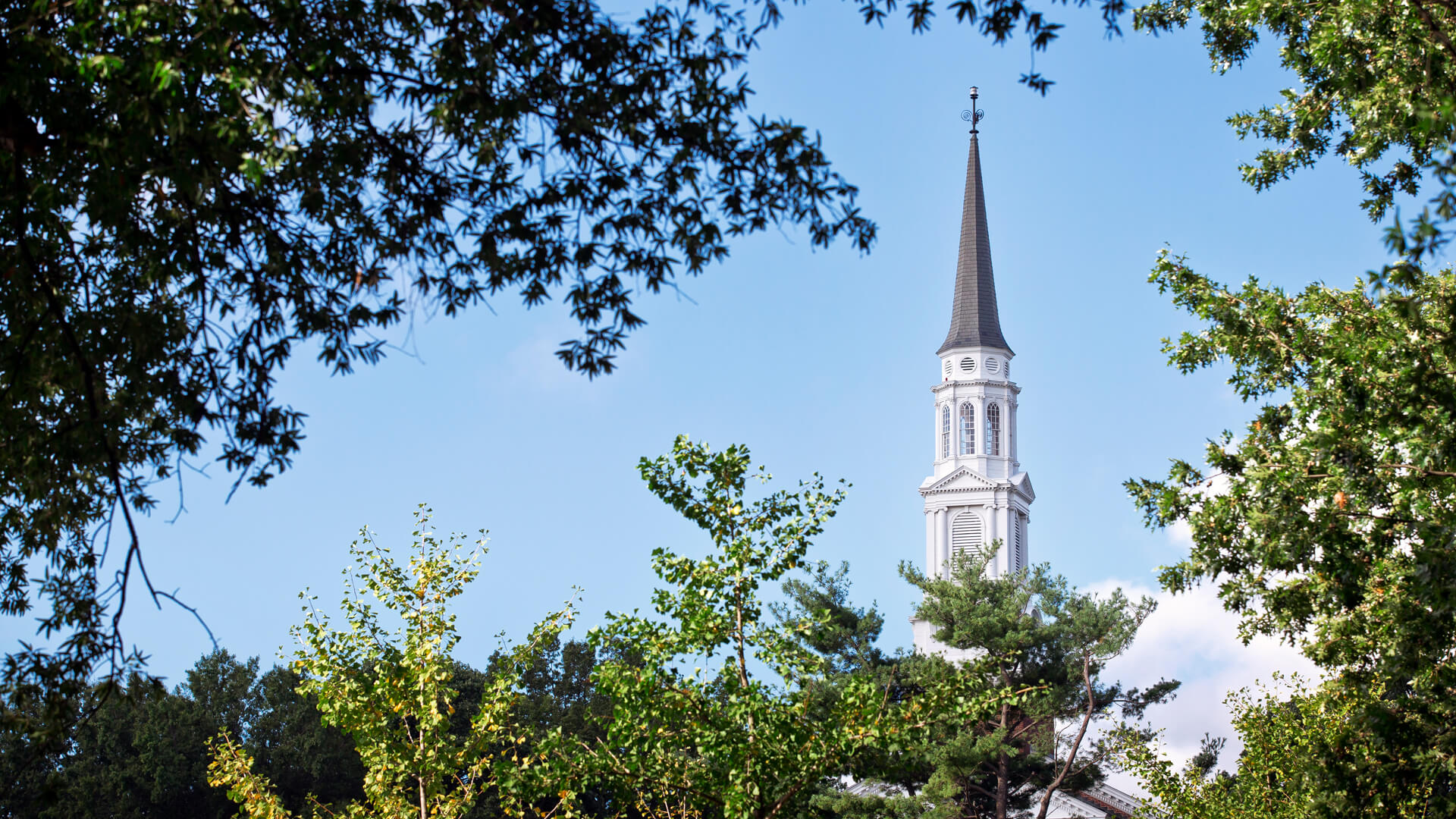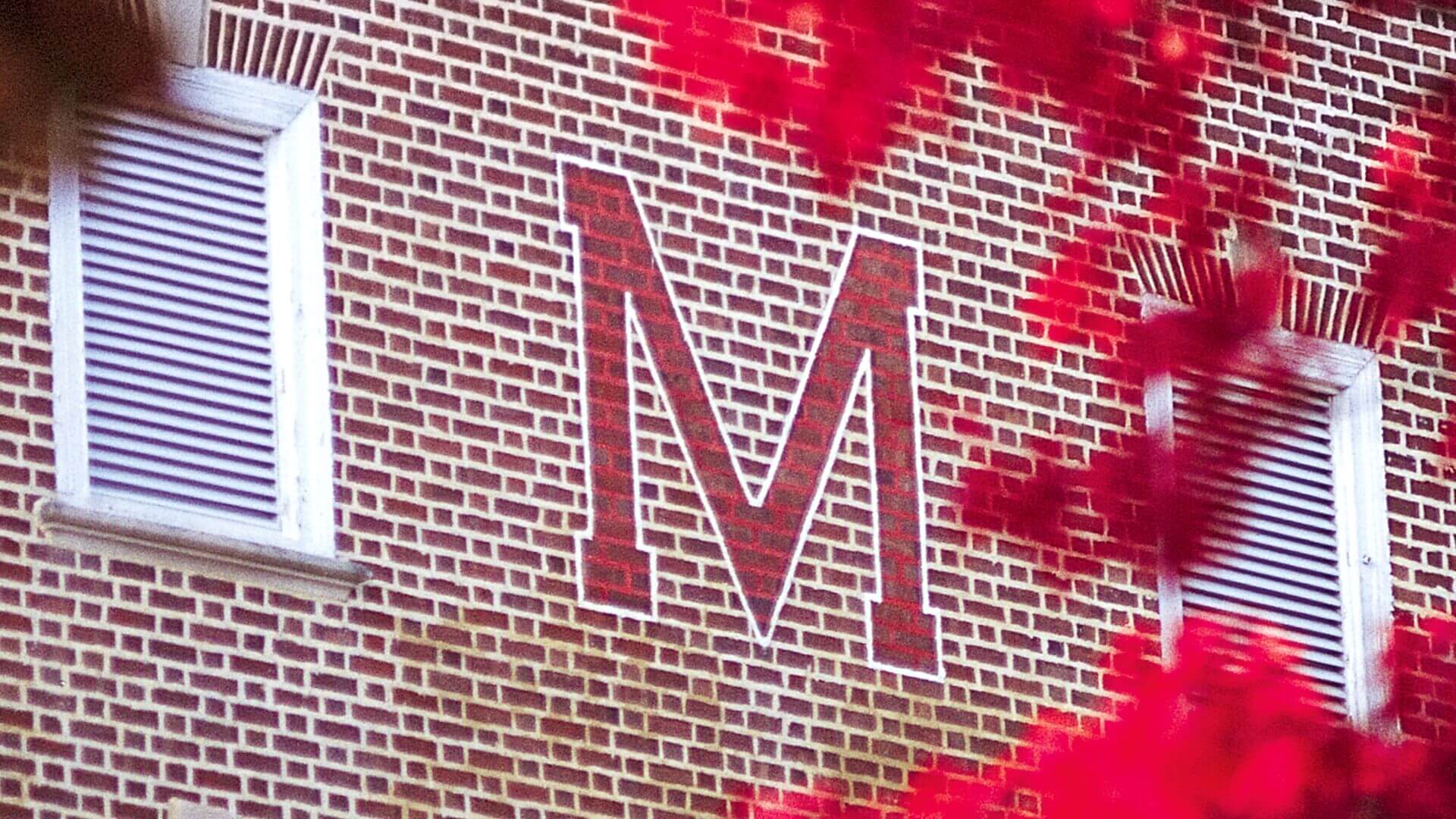
More than 30 student teams applied for funding through the Fall 2018 Do Good Mini-Grant program to help with the development and implementation of their student-led, student-run proposals which aim to create a positive social impact for a social issue or cause. From raising future guide dogs to improve the quality of life for people who are blind, have low vision, or have other special needs to helping young women develop the courage, vision, and skills to take on public leadership, Do Good Mini-Grant teams are tackling a diversity of issues locally and globally.
The Do Good Institute granted funds to 19 teams, with each team receiving up to $500. In addition to funding, teams will receive coaching and support from the Do Good Accelerator. The Spring 2019 Mini-Grant awardees include:
AIM at Melanoma Foundation: UMD Student Chapter
AIM at Melanoma Foundation (AIM) is the largest international foundation engaged in advancing the battle against melanoma through innovative research, legislative reform, education, and patient and caregiver support. This spring, AIM’s UMD chapter will host a research symposium for melanoma patients, their families, and the public to raise awareness about the disease and recent advancements in treatments. This symposium will be at the Johns Hopkins Hospital supported by several medical oncologists and dermatologists. Last year, this event raised $12,000 for melanoma research. ($500)
Bitcamp
Bitcamp is an annual student-led hackathon hosted in the Xfinity Center at the University of Maryland. More than 1,000 students across the country spend a weekend working on projects for positive social impact and engaging with peers and professionals who have a passion for the technology industry. Participants compete in challenges, attend workshops, listen to speakers, and network with peers. This year, the central theme is the Compass Challenge, where participants are challenged to "Build with Purpose" and focus their project on a social cause that is important to them. They will have opportunities to work with local social change organizations in D.C., Maryland, and Virginia. ($500)
CARES Intervention
CARES Intervention is an in-progress online module designed to educate undergraduate students about how to communicate with grieving friends and peers. Social support is an important intervention for college students coping with loss and are at risk for negative mental health outcomes. Unfortunately, undergraduates aren’t always comfortable or knowledgeable when it comes to having conversations about loss. Through an online module, CARES aims to change that. ($500)
College Access Project (CAP)
Since spring 2017, College Access Project (CAP) has assisted local high school students with the college application process through peer mentoring. Although the program focuses on empowering first-generation and underrepresented applicants, any and all high school students are welcome. Partnering with Montgomery College and Montgomery Blair High School’s branch of the Achieving Collegiate Excellence and Success (ACES) program, CAP has held 13 mentoring sessions, provided 40 volunteers with mentorship experience, and impacted the lives of nearly 90 high school students, including a current freshman at UMD. Through a new partnership with the International High School at Langley Park, CAP plans to facilitate “College Summit” classes, conduct several college information sessions and panels, and represent the University of Maryland at a school college fair. ($500)
Do Better Service and Self-Improvement Organization
The mission of Do Better is to inspire and promote the bettering of oneself and the community through self-improvement, selflessness, and accountability. Do Better participates in a weekly service project called Freedom School in which members visit a center for children without families and help them gain self confidence by participating in tutoring, creative writing, and dance activities. Do Better offers general body meetings for more than 50 members, which focus on topics such as self improvement, interpersonal relationships, study abroad opportunities, meditation, and sexual violence awareness. Do Better also hosts an annual Food Run event that engages community stakeholders to feed those in need in D.C. ($500)
Future of Human Health and Medicine Organization
Future of Human Health and Medicine Organization empowers public high school students in the Annapolis area by exposing them to the medical field, providing medical opportunities, and connecting them with local mentors. Originally founded in 2012 as the Future Doctors Organization, the program features local medical leaders as guest speakers at high schools, monthly hands-on mentor guided experiences in medical facilities, and annual career nights. In an effort to eliminate medical disparities and diversify the medical workforce, FHHMO is also developing online content and resources for high school students. ($250)
Guide Dog Foundation for the Blind at UMD
Guide Dog Foundation for the Blind at UMD enables students to raise future guide dogs to improve the quality of life for people who are blind, have low vision, or have other special needs. Students are charged with raising calm, confident, well-socialized dogs that learn how to manage a busy routine and gain obedience and outstanding house manners. The club now has 30 puppies on campus and more than 75 students involved. It has graduated two guide dogs, four scent detection dogs, and one breeder since its inception in February 2017. ($500)
Kids Excelling in Math and Science
Kids Excelling in Math and Science (KEMS) provides after-school enrichment via STEM activities for students at Hyattsville Middle School in Prince George's County. The KEMS curriculum covers natural and environmental sciences, with an emphasis on doing hands-on science. This year, UMD mentors are working with 40 KEMS scholars to explore important issues regarding the science and politics of water and their relevance for ethically and environmentally responsible public policy. This semester they will go on two field-trips, one to the Anacostia River and the other to the National Air and Space Museum. ($500)
The Motion Project
The Motion Project is a nonprofit that seeks to improve educational outcomes for Sri Lankan children with physical disabilities by funding tutoring services and specialized transportation to keep students in school and improve their performance. Partnering with the Colombo Friend-in-Need Society, Sri Lanka’s oldest charity, The Motion Project has funded educational grants to more than 40 students consistently over the past three years. To continue raising awareness for their efforts, The Motion Project will partner with the Sri Lankan Student Association (SLSA) for a second year to host an on-campus Sri Lankan cultural event and fundraiser. The Motion Project hopes to reach 100 students with the event, recruit volunteers for their pen pal program, and raise $500 for their educational grant program. ($500)
Nourish: Mommy and Me
Nourish: Mommy and Me is a student organization that aims to support pregnant women and their children and provide them with healthy foods to sustain them throughout their pregnancy. Nourish partners with Gabriel Network, a nonprofit organization that helps mothers in crisis pregnancies in Prince George’s County and Howard County. Nourish has successfully taught many women about the importance of health, community, and nutrition. ($500)
Peer to Peer
Peer to Peer is a student organization at the University of Maryland that partners with the International Rescue Committee to provide tutoring and mentoring programming for refugee youth in the Prince George’s County area. Started in fall 2017, the program provides after-school programming 4 to 5 days per week. The program has around 30 UMD student mentors who work with up to 40 refugee students in middle and high school. The group also hosts a Saturday Learning Series focused on homework help as well as SAT preparation with occasional weekend outings for refugee students. ($500)
PLUMAS
Political Latinxs United for Movement and Action in Society (PLUMAS) is a social justice organization focused on discussing and advocating for substantive issues affecting the Latinx and other marginalized communities. By providing a safe, proactive space where students can discuss these topics, PLUMAS seeks to foster civic engagement and awareness through education, advocacy, and acts of community service. PLUMAS created the DREAM Gala and DREAM Fund to support undocumented students with financial assistance for emergency legal expenses such as status renewals. In the last two years of hosting the annual DREAM Gala, PLUMAS has raised nearly $6,000, helped 11 students renew their DACA status, and provided two academic scholarships for undocumented students. ($500)
Preventing Sexual Assault
Preventing Sexual Assault (PSA) is a student-run organization formed on the premise that all survivors of sexual assault deserve support from their community. PSA’s goals are to end the epidemic of sexual assault on UMD’s campus and provide meaningful approaches to prevention education to make a change in our campus culture. PSA holds weekly educational meetings as well as education and advocacy-related events throughout the semester, including Occupy McKeldin on April 17. The 6-hour event focuses on educating students, promoting advocacy, as well as providing survivors an outlet to heal amongst the support of the campus community. ($500)
Project Girls for Girls
Project Girls for Girls (G4G) helps young women develop the courage, vision, and skills to take on public leadership. Bringing together insights from established leaders, G4G mobilizes a generation of mentors to grow the pipeline of qualified women ready to take on public leadership roles. G4G operates in five countries and, this spring, is launching its first U.S. based program at the University of Maryland. The program features five small-group mentorship circles designed to help participants uncover their purpose and equip them with new skills to achieve their goals. Mentorship circles are led by an established leader and include discussion on the art of communication, negotiation, public service and running for office, and courageous leadership. G4G plans to deliver mentorship circles, a repository of skill-based tools, and access to a global network to 20 young women on campus. ($500)
The Saturday Literacy Enrichment Program
The Saturday Literacy Enrichment Program (SLEP) is a free, yearlong multi-sensory reading intervention program led by 17 current UMD literacy tutors. SLEP seeks to improve the literacy of children through comprehensive exposure to the fundamentals of readings, provide STEM exposure to children, and give them early access to college through the University of Maryland. The program supports 20 children, between five- and eight-years-old who do not read or write at grade level, by improving reading proficiency through fundamentals of reading and writing skills. ($500)
STEMerge
STEMerge provides fun and impactful experiences for girls aged 11-16 to excite and retain interest in the STEM fields. STEMerge summer programs will be two-week long camps that give girls an opportunity to visit different companies and organizations that operate in the STEM fields, while allowing them to work on projects that foster their interest in STEM. These projects will allow them to develop specific technical skills related to programs like CAD, 3D printing, and programming. STEMerge hopes to impact upwards of 120 girls when the program launches in Summer 2020. ($500)
Students Ending Slavery
Students Ending Slavery raises awareness of the issue of human trafficking/modern slavery and mobilizes students to take part in abolishing modern-day slavery. Students Ending Slavery is partnering with Oxfam UMD to host the 5K for Freedom to raise awareness of human trafficking and the refugee crisis. Before the run, there will be an simulation by Oxfam for students to understand the challenges refugees face. As students run/walk they learn about trafficking and its warning signs through different stops. Students Ending Slavery will donate a portion of the proceeds to the University of Maryland SAFE Center to support local victims of human trafficking. Last year's event helped raise more than $1,000. ($500)
Synapto
Synapto uses next generation brainwave scanning technologies and AI tools to make Alzheimer's diagnoses more accessible, effective, and earlier. The team was awarded the first place prize in the National NIH competition with a grand prize of $20,000 for its development of novel and high accuracy models. Since then, Synapto has made global partnerships, been featured in 30+ news outlets including Forbes, Washingtonian, Freethink, and others, and is now looking to drive product development to commercialization with more clinical data, a research paper, patent, and more. ($500)
Women In Aeronautics And Astronautics
Women In Aeronautics And Astronautics (WIAA) fosters a professional and supportive community for women and other underrepresented groups in aerospace. The organization’s goal is to empower women with opportunities for leadership, technical and professional development, networking, and outreach, as well as to advocate on behalf of female students in aerospace. WIAA Day is a day-long event created and hosted by WIAA at the University of Maryland, for 100 female high school and middle school students with an interest in engineering, math, and science. The goal is to encourage these students to pursue STEM careers, in particular, in the aerospace industry. ($500)



